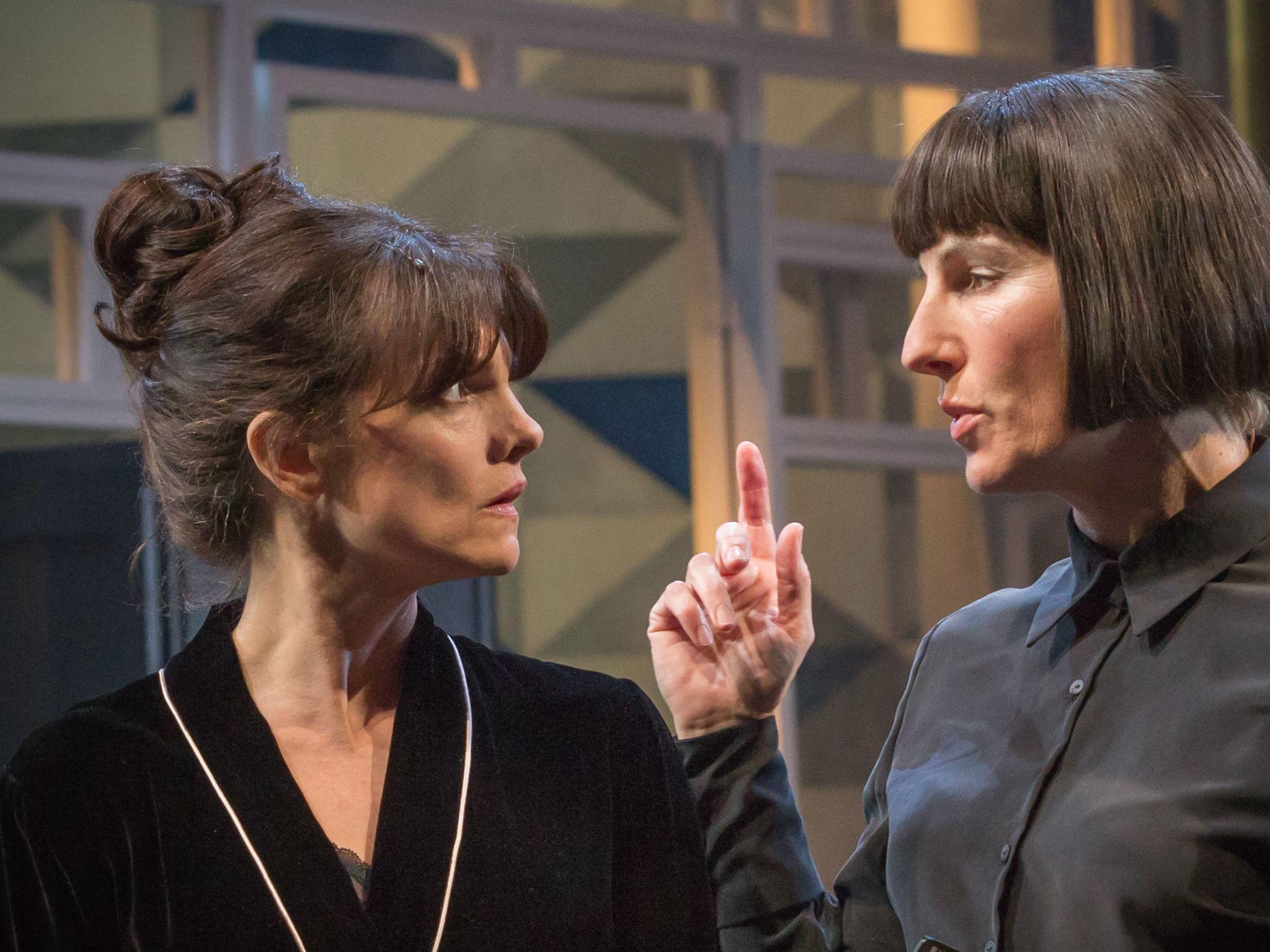Twelfth Night, Olivier, National Theatre, London, review: There's a touch of Mrs Danvers about Greig's devoted steward
Tamsin Greig plays Malvolia, a traditionally male role, in Simon Godwin’s new modern-dress production of Shakespeare’s classic comedy of mistaken identity, joining the ranks of great actresses, who are tackling meaty Shakespearean roles, including Glenda Jackson as Lear

Your support helps us to tell the story
This election is still a dead heat, according to most polls. In a fight with such wafer-thin margins, we need reporters on the ground talking to the people Trump and Harris are courting. Your support allows us to keep sending journalists to the story.
The Independent is trusted by 27 million Americans from across the entire political spectrum every month. Unlike many other quality news outlets, we choose not to lock you out of our reporting and analysis with paywalls. But quality journalism must still be paid for.
Help us keep bring these critical stories to light. Your support makes all the difference.
Gender identities and sexual orientations start to feel strangely fluid in the haunting confusions of Twelfth Night. Both the Countess Olivia and Duke Orsino are aroused by the shipwrecked Viola when she’s in her male disguise as the page “Cesario”, while Viola’s twin brother Sebastian, in his search for her, is protected and romantically pined after by the sailor Antonio who fished him out of the sea. Simon Godwin’s new modern-dress production in the Olivier compounds the complications by re-imagining Malvolio, the uptight killjoy steward, as Malvolia, a woman who harbours a lesbian passion for her employer, the Countess.
Tamsin Greig joins the ranks of the great actresses who are now tackling major Shakespearean roles – Glenda Jackson as Lear; Harriet Walter as Brutus, Henry IV, and Prospero; Michelle Terry as Henry V. The difference is that whereas they played those characters as men, there’s been a gender re-think for Greig’s funny and ultimately desolating portrayal of this repressive Puritan. The legislation that happily made same-sex marriages possible has also rendered a female version of the character feasible. She can, both plausibly and preposterous, dream of becoming Countess Malvolia – though the social-upstart aspect of the part is down-played.
Instead, there’s a touch of Mrs Danvers about Greig’s devoted steward when she gazes longingly at the sleeping Olivia or berates the revellers for their lack of “respect” in a voice that drops to throaty piety, as though her mistress were a religion to her. Helmeted in a jet-black ruler-cut bob, she trots about in career-woman culottes, repositioning fractionally out-of place shrubs to within a millimetre of their lives. The ridiculous vanity and self-love in the character, as conceived by Shakespeare, seem to me, however, to be stubbornly the product of a male ego, so I was neither convinced nor amused by the heavy-handed additions to the celebrated yellow cross-gartered stockings scene. Tricked into being excruciatingly forward to her mistress, Malvolia doesn’t just swathe her pins in lemon. She throws off a Pierrot jacket and lets out her full inner Cyd Charisse movie, all legs and swimsuit, beckoning Olivia to come up the staircase and feel her revolving nipple tassels. Greig goes over the top with relish, like the trooper she is, but it's all very broad. It's with her quiet, wonderfully chastening account of the broken, humiliated Malvolia at the end that she excels.
Emotional tentativeness and elusive pastel shading seem to have been outlawed in Godwin’s lively but rather acrylic version of Illyria. Phoebe Fox is a combative, impatient Olivia; Tamara Lawrance would be a lovely Viola if she were less rushed by a production that's happier with pacey farcical knockabout than with those passages of aching poetic melancholy that need more time to breathe. There are surely of tremors of sapphic feeling in Olivia’s response to “Cesario” and these would be richly ironic here, given that she is idolised by a lesbian steward. But the production makes frustratingly little of this, even in the scene where the Countess, waggling a pair of bronze trunks at “him”, persuades her page into the home plunge pool and the panicking Viola has to disguise the breasts showing under her wet shirt.
Some very good actors are, in my view, under-challenged by the brisk approach here. Oliver Chris's Orsino has been directed to be too much of a chump. His boxing with “Cesario” in the gym has about as much properly frisson-inducing homoerotic tension as Eric's bedtimes with Ernie. A would-be sophisicate roue in too-tight jeans, Tim McMullan is reliably good as Sir Toby; Daniel Rigby's likeable Aguecheek is not going to start a trend in the man-bun plus pink suit look. A drag queen in stacked heels and space-age tin-foil sings a Hamlet soliloquy in the louchely ambiguous night club. This additional character makes more of an impact in my view, than Doon Mackichan whose female Feste in shorts and tights fails to snag the heart with her songs and feels a bit standard-issue. Rather objecting to any of the gender-bending, I kept wanting to take it further. How about a trans version of this outsider clown? I have to say that the audience seemed to love the show but it came over to me to be the kind production that piles it on without sensitively thinking it through.
Join our commenting forum
Join thought-provoking conversations, follow other Independent readers and see their replies
Comments